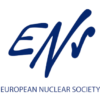BR2 Research Reactor Will Run With LEU In 2026
SCK CEN (ENS Corporate Member) announced that the BR2 research reactor will switch to low-enriched uranium (LEU) in 2026.
Then BR2 will be the world’s first research reactor with high-performance fuel on low enriched uranium.
As SCK CEN said, the change to LEU will help to prevent the potential spread of highly enriched uranium (HEU) – a possible part of nuclear weapons.
The Belgian nuclear research center is so developing a completely new fuel type in close collaboration with the United States.
The switch to LEU requires extensive testing and the preparation of a significant safety file.
Indeed, SCK CEN must prove to the Belgian nuclear authority Federal Agency for Nuclear Control (FANC) that the new fuel type is just as safe as the current one. Moreover, the research reactor must deliver the same technical performance using this new fuel type.
As SCK CEN researchers underline, it is a challenging task, because “in highly enriched uranium, we can split almost all uranium atoms. In low-enriched uranium, only one atom in five is fissile“.
Jared Wight, project manager, said that LEU has already completed several demonstration phases:
We are now in the last demonstration phase. In the first phase, small samples may be tested in moderate conditions. This means that the power is limited and the burnup fraction – the degree to which the fuel has been burned up – is also limited. In the second phase, we expose full-size, individual fuel plates to higher power and a higher burnup fraction. In the third phase, these fuel plates are incorporated into future fuel assemblies and tested in real conditions.
Read the full SCK CEN Press Release.
BR2, located in Mol and operating since 1962, is among the most powerful research reactors in the world. It plays a vital role in the global supply of medical radioisotopes and testing nuclear innovations, fuel, and materials.
In 2021, more than 10 million patients were helped thanks to the production of medical radioisotopes in the Belgian research reactor BR2, which typically produces 10 to 15 different radioisotopes per operating cycle.
